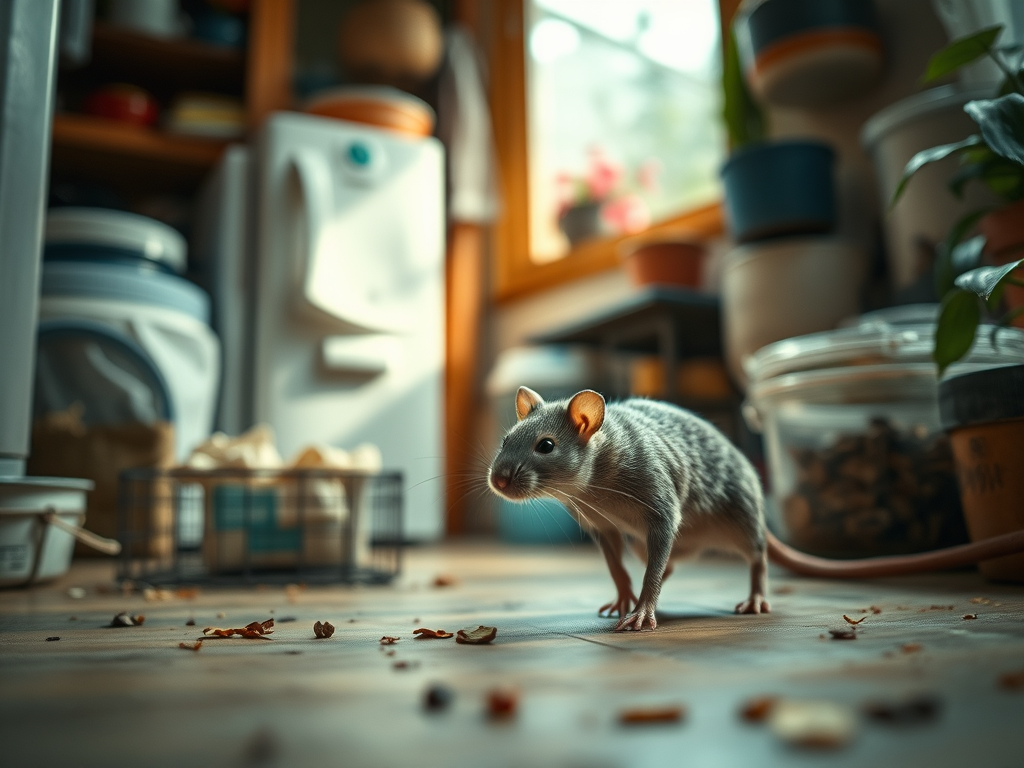
Introduction
Rats are more than just a nuisance; they can spread diseases, damage property, and contaminate food. Preventing a rat infestation is far easier than dealing with one after it has taken hold. Rats are highly adaptable and can enter homes and buildings through the smallest openings, so vigilance is key. This article will explore practical strategies to keep rats out of your home and property, ensuring you can live rat-free.
Signs of a Rat Infestation
Before diving into prevention tips, it’s important to recognize the signs of a potential rat infestation:
- Droppings: Rat droppings are a clear sign of an infestation. They are typically found near food sources or nesting areas.
- Gnaw Marks: Rats have strong teeth that never stop growing, so they constantly gnaw on materials like wood, plastic, and wires.
- Scratching Sounds: Rats are nocturnal, and you may hear scratching or scurrying sounds in walls, attics, or basements at night.
- Grease Marks: As rats move through tight spaces, they leave behind greasy trails from their fur rubbing against walls.
- Nests: Rats build nests out of soft materials like paper, insulation, and fabric. These are often found in hidden or unused areas of the home.
- Unusual Pet Behavior: If you have pets, they may become agitated, especially around areas where rats are active.
How to Prevent Rat Infestations
- Seal Entry Points
Rats can squeeze through tiny openings, making it important to thoroughly inspect your home for potential entry points.
- Check cracks and holes in walls, doors, and foundations, and seal them with steel wool or caulk.
- Cover vents and chimneys with wire mesh to prevent rats from entering.
- Ensure windows and doors close tightly without gaps.
- Maintain Cleanliness
A clean home is less appealing to rats, as they are attracted to food and shelter.
- Keep kitchen areas clean by wiping down countertops, sweeping floors, and storing food in airtight containers.
- Dispose of garbage regularly and ensure outdoor trash cans have tight-fitting lids.
- Don’t leave pet food out overnight or uncovered, as this can attract rats.
- Eliminate Food Sources
Food is the primary attraction for rats, so it’s essential to remove easy access to food sources.
- Store dry food in sealed containers rather than leaving them in bags that can be easily chewed.
- Clean up any spilled birdseed or pet food outdoors, which can attract rats to your yard.
- Avoid leaving dirty dishes in the sink overnight.
- Manage Outdoor Areas
Your yard and garden can be just as attractive to rats as your home, especially if they provide food and shelter.
- Trim shrubs and trees so they don’t touch your home, as rats can use them to access your roof.
- Store firewood and building materials away from your home and at least 18 inches off the ground.
- Remove fallen fruits and vegetables from gardens, as they can be a food source for rats.
- Secure Compost Bins
Rats are attracted to the rich organic material in compost piles, especially if food scraps are involved.
- Use rat-proof compost bins that are sealed tightly.
- Avoid adding meat or fatty food scraps to the compost, as these are particularly attractive to rats.
- Regularly turn your compost to aerate it and deter rats from nesting.
- Eliminate Water Sources
Rats need water to survive, so eliminating standing water is a crucial prevention step.
- Fix any leaky pipes or faucets indoors and outdoors.
- Ensure gutters and drains are clear of debris to avoid standing water.
- Remove or cover outdoor water features like birdbaths or ponds if they aren’t regularly maintained.
- Use Rat Repellents
There are several natural and commercial repellents you can use to deter rats:
- Peppermint oil is a natural deterrent; placing cotton balls soaked in peppermint oil near entry points can help repel rats.
- Ultrasonic devices emit high-pitched noises that can drive rats away, although effectiveness may vary.
- Commercial rodent repellents are available in sprays or granules and can be placed around the home.
- Set Traps Early
If you suspect a rat problem or live in an area prone to infestations, setting traps proactively can help catch any early intruders.
- Use snap traps or electronic traps in areas where rats are likely to travel, such as along walls or near food sources.
- Bait traps with peanut butter or dried fruit, which are highly appealing to rats.
- Regularly check traps and dispose of any caught rodents.
- Call Pest Control Professionals
If you suspect a rat infestation or are struggling to keep rats at bay, it may be time to consult a professional pest control service.
- Pest control experts can identify entry points, set traps, and provide long-term solutions to keep rats out of your home.
Why Preventing Rats Is Important
Preventing rat infestations is about more than just avoiding the unpleasant sight of rodents in your home. Rats pose serious risks, including:
- Health hazards: Rats carry diseases such as leptospirosis, hantavirus, and salmonella, which can be transmitted to humans.
- Property damage: Rats gnaw on wires, wood, and insulation, which can lead to electrical fires and costly repairs.
- Food contamination: Rats can contaminate food and water supplies, leading to illness and wasted resources.
Conclusion
Preventing a rat infestation requires a proactive approach, from sealing entry points to managing food sources and keeping your property clean. By taking these preventative measures, you can reduce the risk of rats invading your home and causing damage. If you suspect an infestation, act quickly to prevent the problem from worsening and consider seeking professional help if necessary.